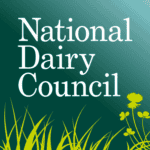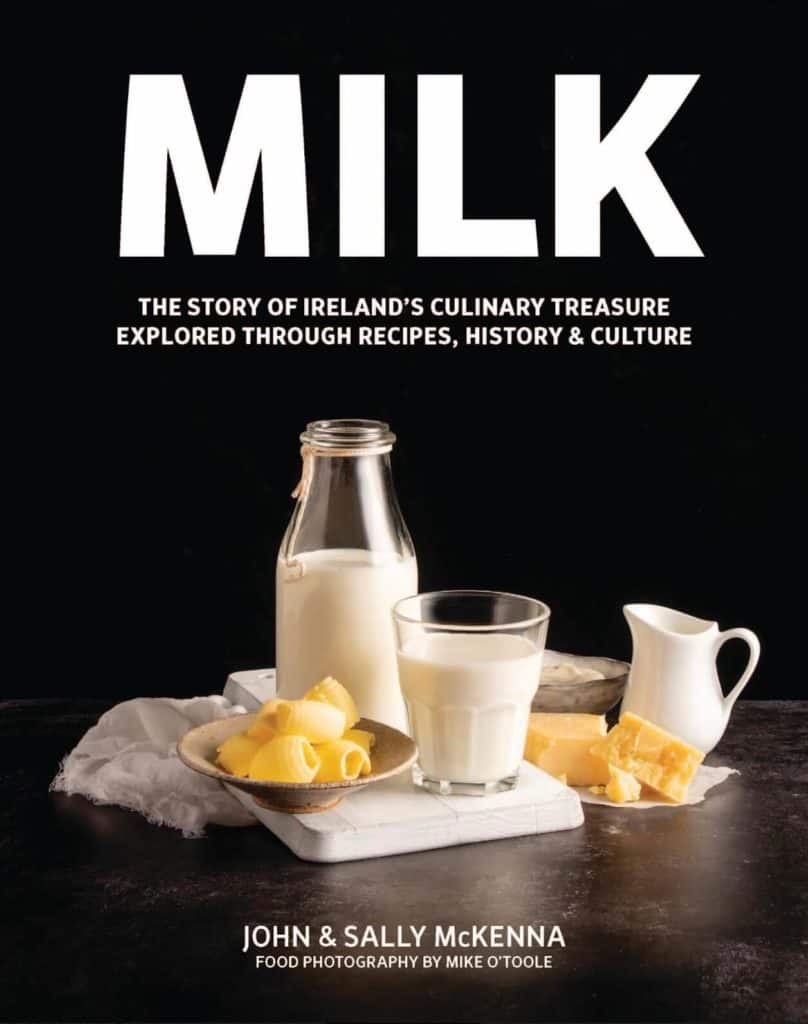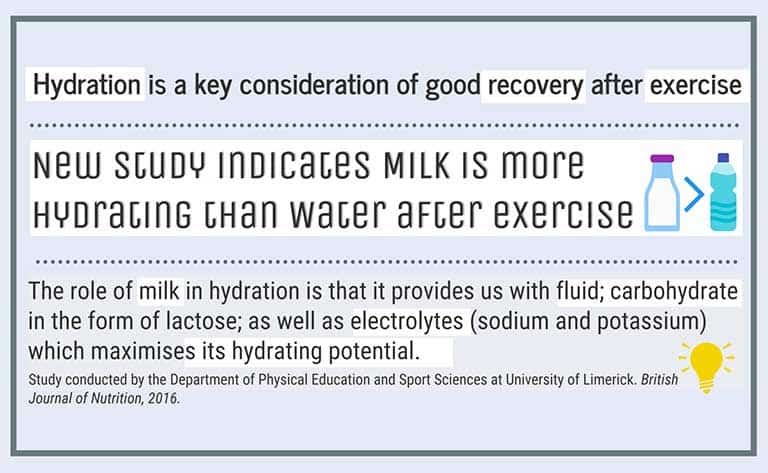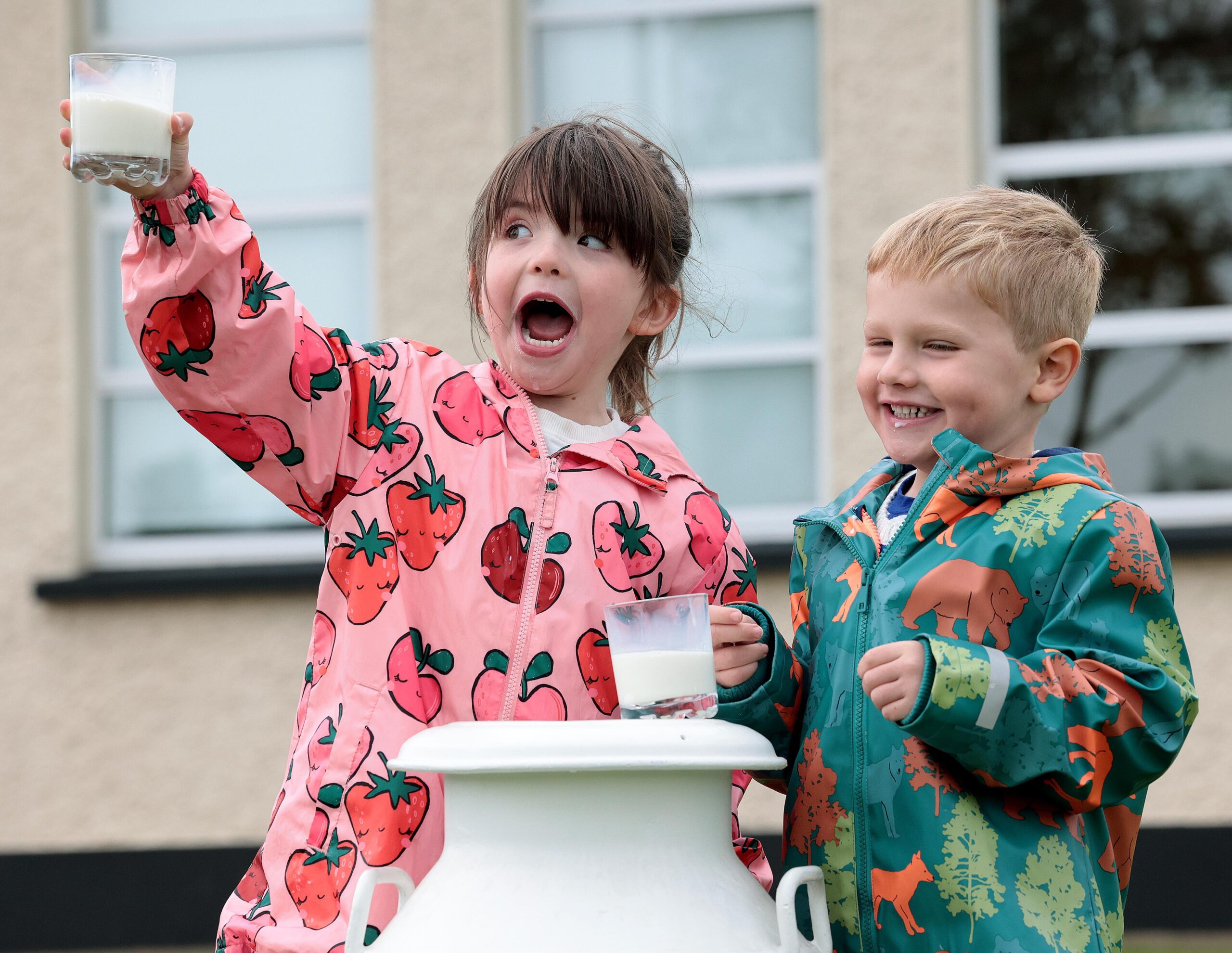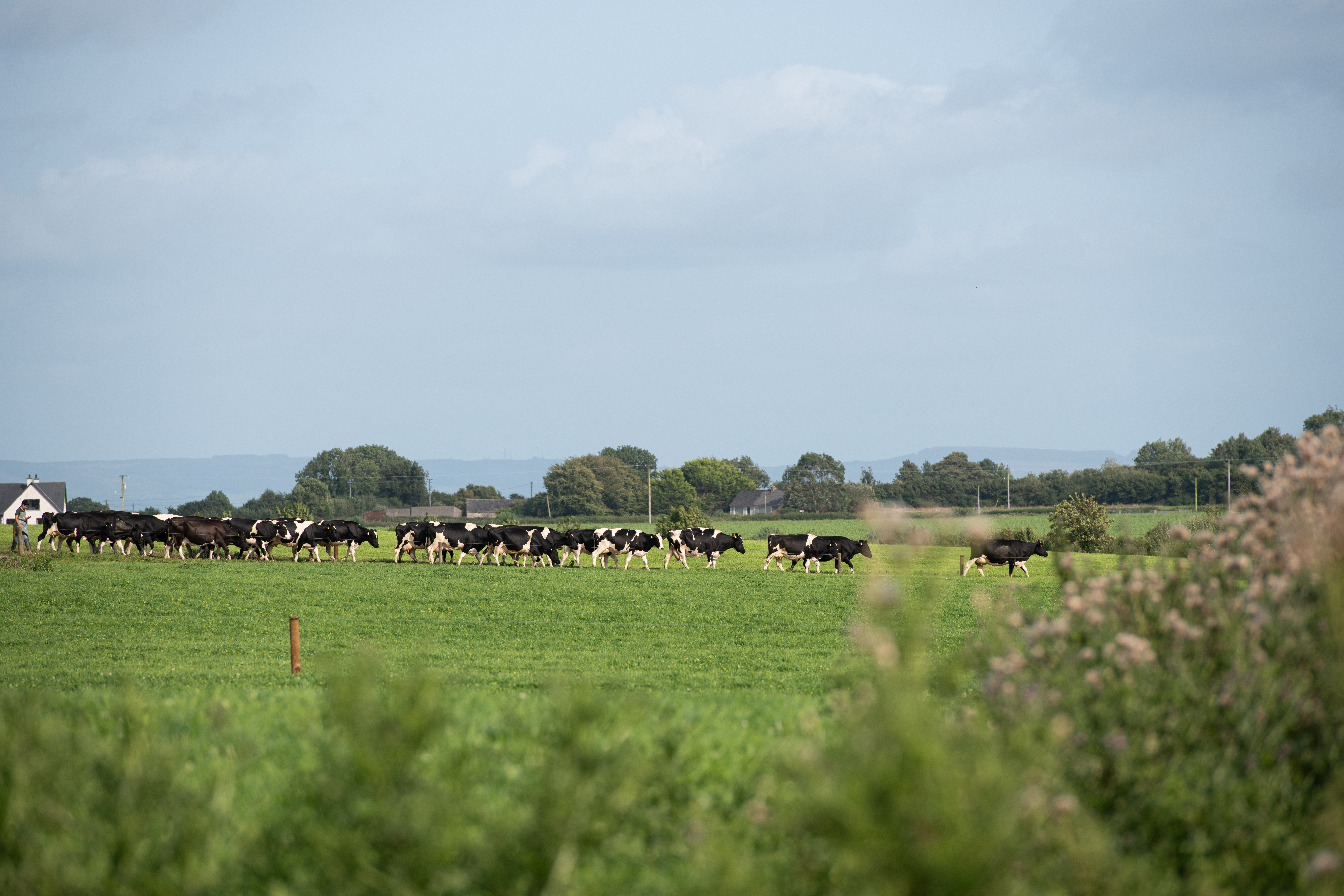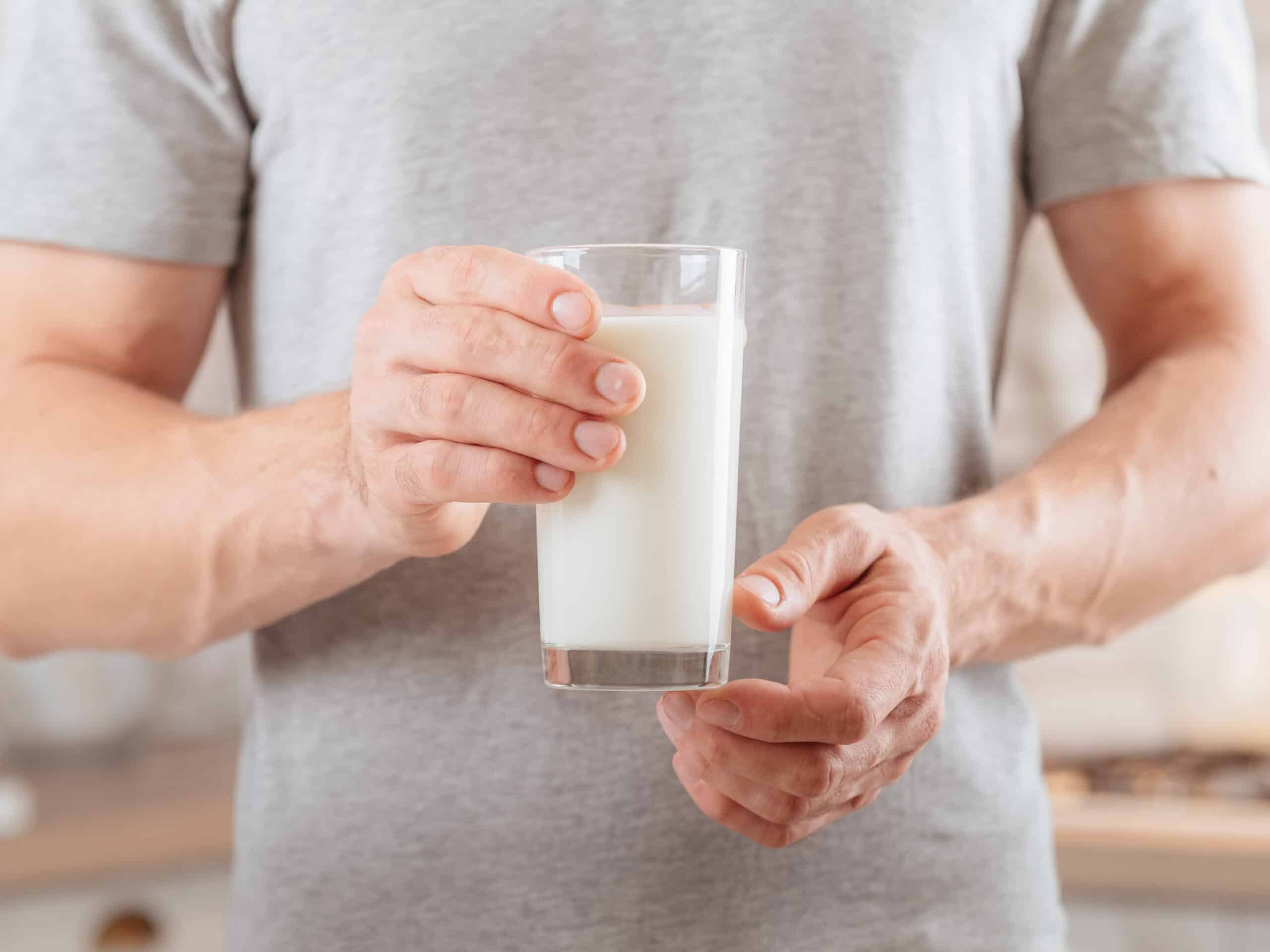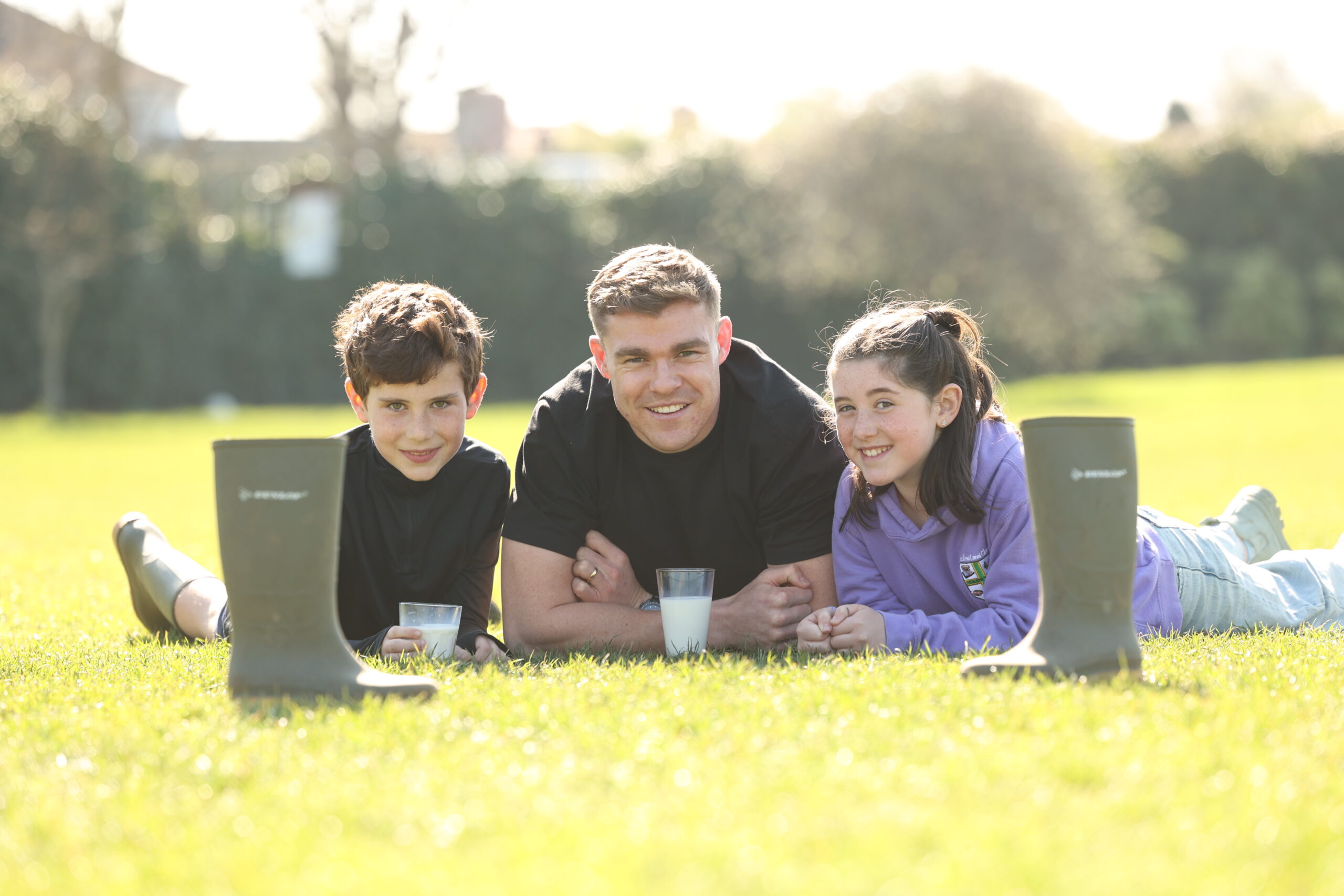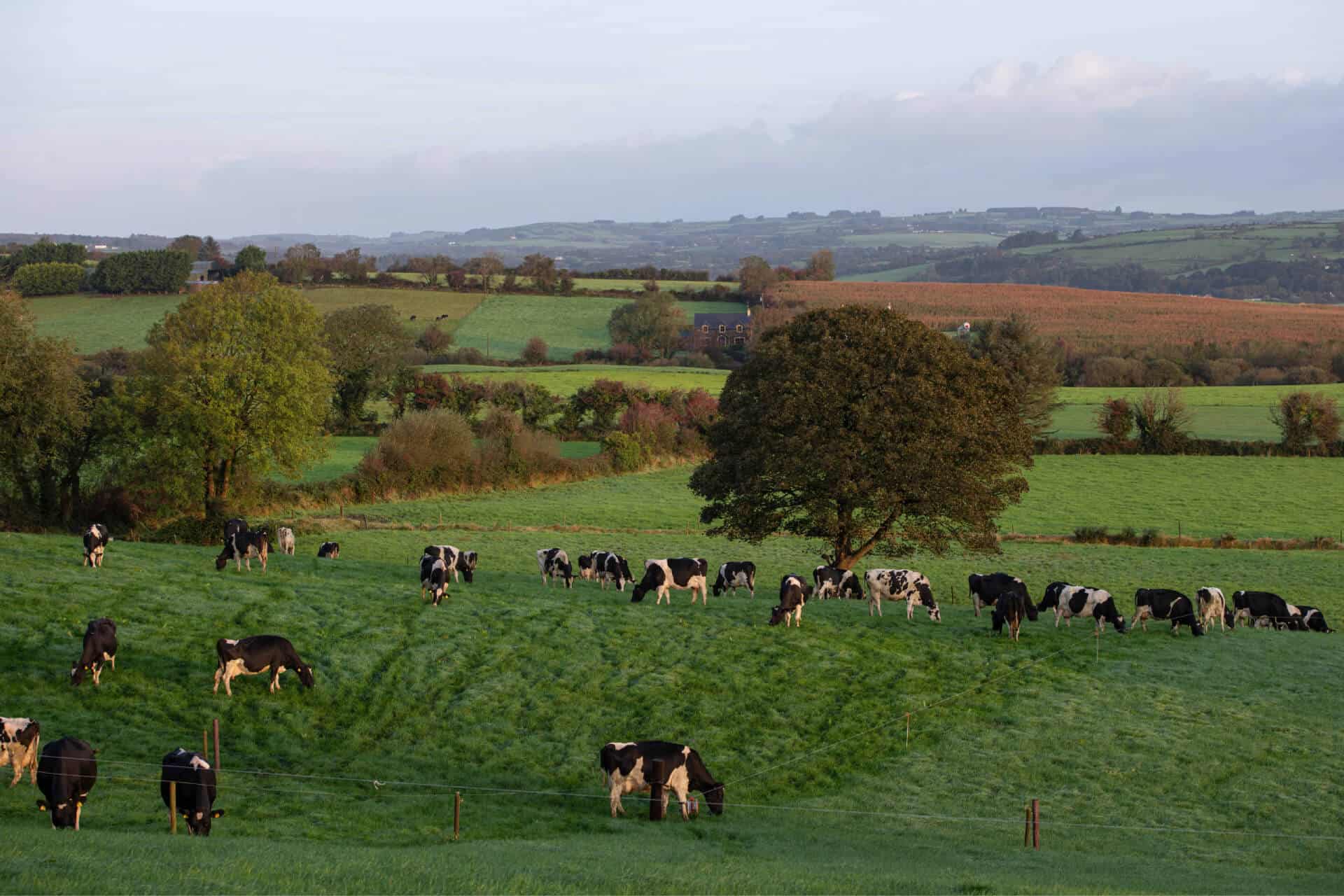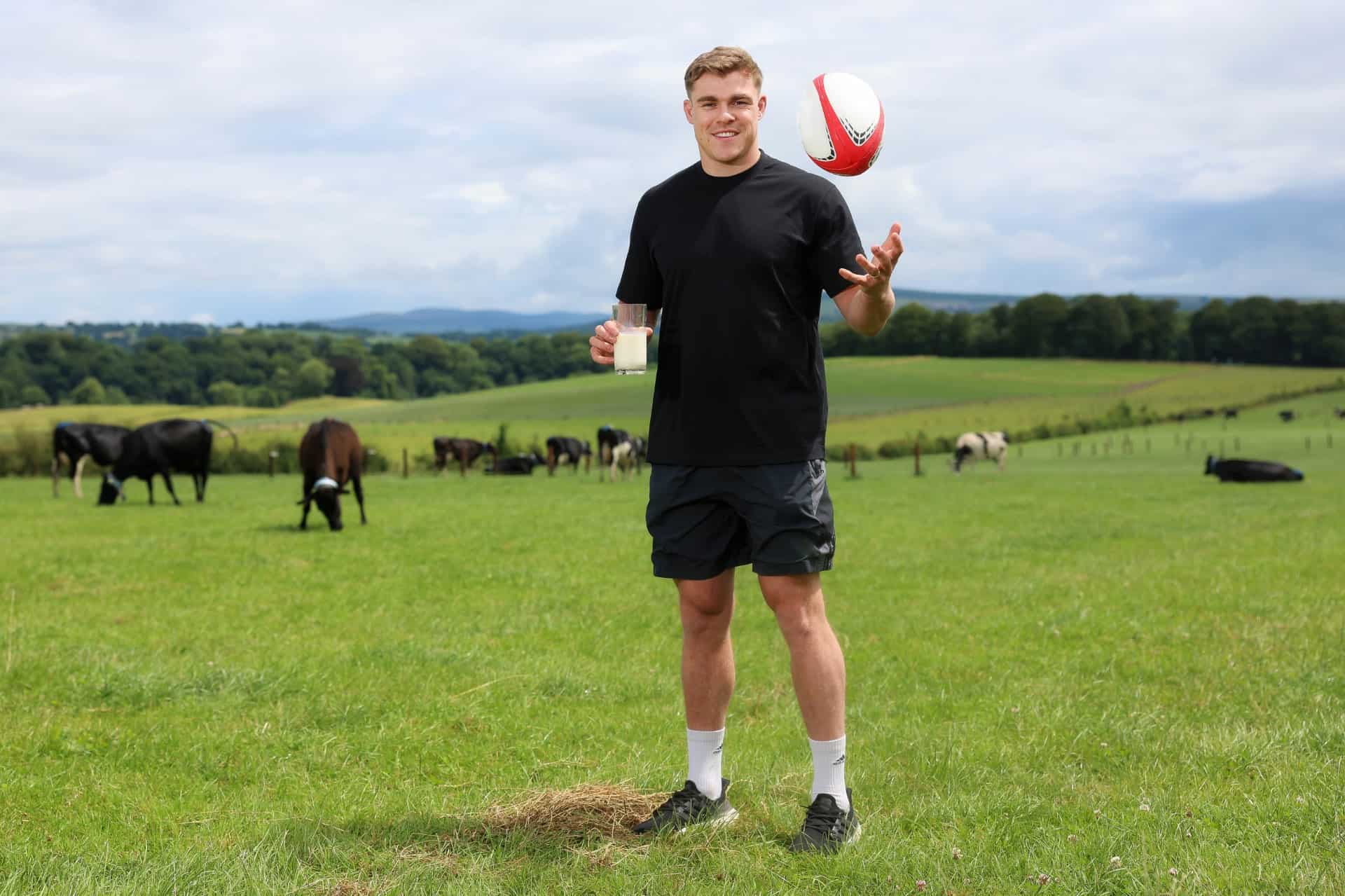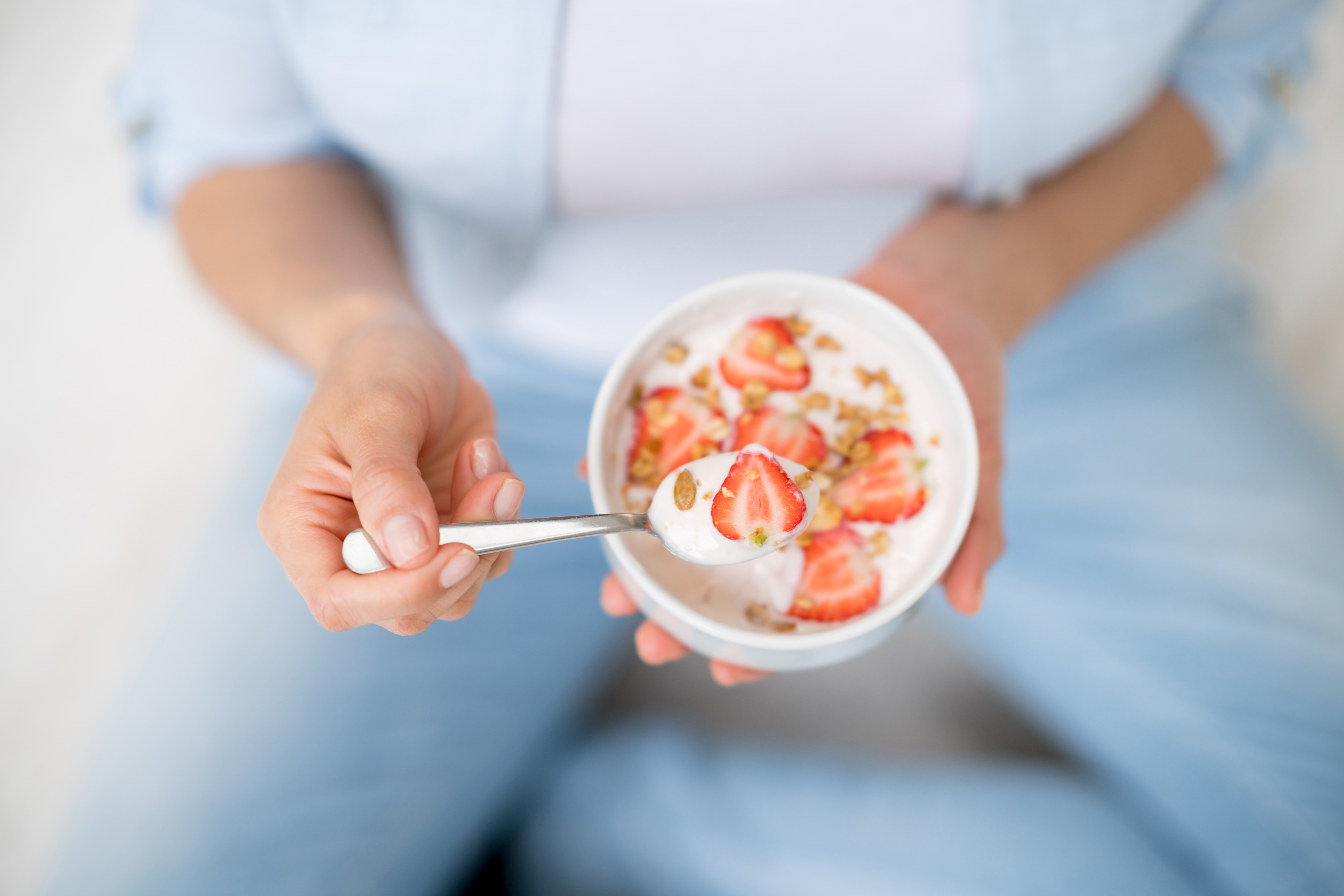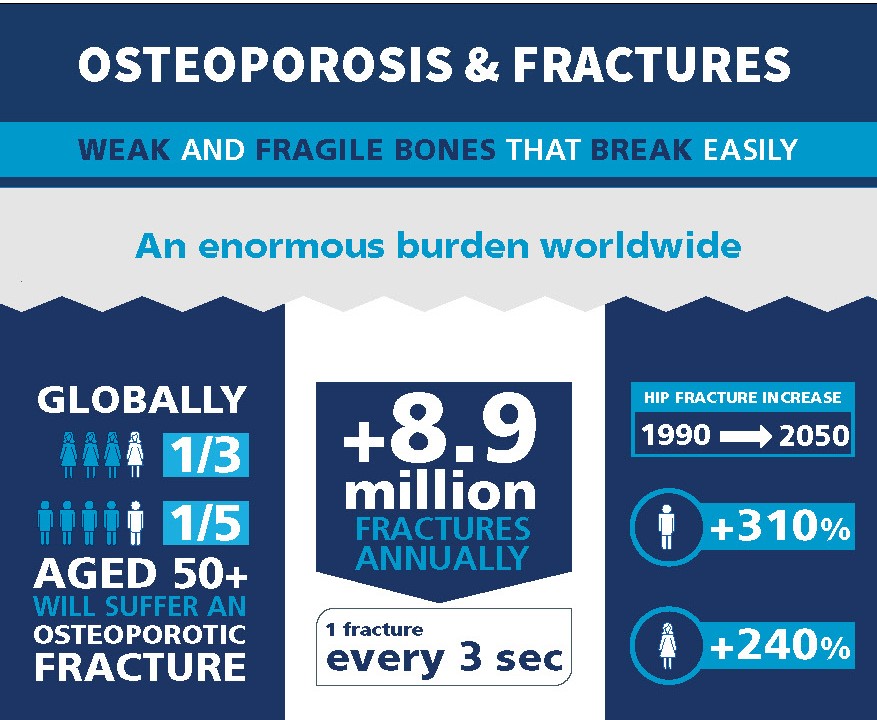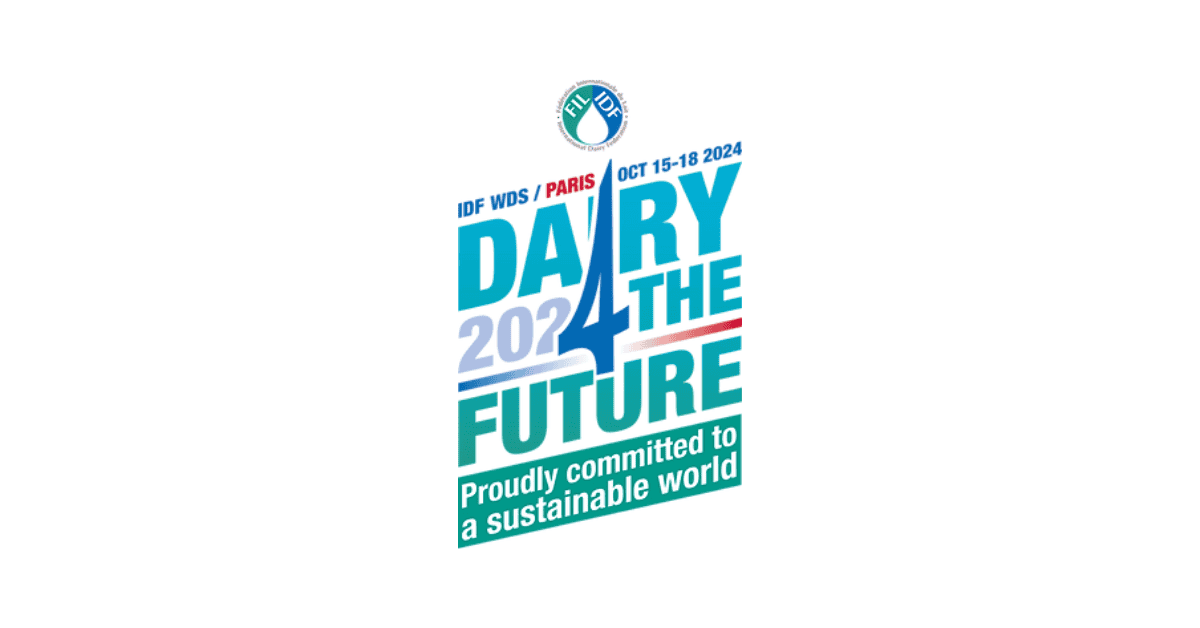2 November 2016: You may not be aware of exciting new research emerging on the specific benefits of milk in sport and its potential role in recovery after exercise. To perform at their best, sports professionals, and non-professionals alike, must optimise their dietary intake.
For rugby players, Rob and Dave Kearney this means getting the right amounts of energy and nutrients to meet the demands of their intense training schedule. Timing meals can be a challenge but Rob says: “We appreciate the importance of diet and nutrition when it comes to our performance and we take guidance from the professionals in this area. Eating well is essential, and adapting your nutritional intake to your sport is a necessity. In-season or out of season, as well as pre, during and post-performance, all influence our nutritional considerations.”
He describes recovery as an essential element of any training regime – “Hydrate, restore, nourish and rest.” Rob says that, generally speaking, their diets contain a wide range of foods and both enjoy dairy foods. “Effective recovery after sport or intense exercise is a key consideration of sports nutrition because recovering well will help you perform your best at your next training session, competition or match. Milk is a convenient and versatile option for us to include after exercise as it provides a range of nutrients we need to consume to recover well”.
What do the experts say?
A new study has revealed the benefits of choosing milk for hydration after exercise. The study conducted by the Department of Physical Education and Sport Sciences at University of Limerick analysed a group of seven young men aged 26 years. The men were asked to cycle in a temperature controlled room to achieve a level of dehydration traditionally associated with impaired sports performance.
The drinks compared were milk (0.1% fat), a commercially available sports drink and water and hydration markers were measured over the 5-hour recovery period. At the end of the recovery period, it was shown that rehydration with milk is as effective as a commercially available sports drink and more effective than water alone.
Hydration is a key consideration of good recovery, with effective rehydration involving the replacement of fluid and electrolytes (salts) that are lost when we sweat during exercise. The role of milk in hydration is that it provides us with fluid; carbohydrate in the form of lactose; as well as a number of electrolytes (sodium and potassium) which maximises its hydrating potential.
Dr. Sharon Madigan RD, PhD, RSEN. Head of Performance Nutrition, Irish Institute of Sports explains “The choice of rehydration fluid post exercise depends on a number of factors including how rapidly an athlete needs to rehydrate, if single or multiple training/competition sessions are planned within a 24-hour period, as well as individual preferences and palatability of the drink”.
“Although further research is welcome across age groups, genders and various sports, three to four hours after exercise, this research is suggesting that somebody can be more hydrated when consuming milk, rather than water, after exercise. Milk and water are both good for rehydration, but milk will additionally help address muscle recovery by providing protein; and assist the refuelling of energy stores due to its natural carbohydrate content. In addition, milk is a popular option after exercise as it is considered a practical option as it is convenient, widely accessible, inexpensive and versatile”.
Editors Notes
Unique to this study was that a metered approach of fluid intake was used, with set quantities of fluid taken every 30 minutes over 2.5 hours to reflect more ad libitum consumption patterns. The drinks compared were milk (0.1% fat), a commercially available sports drink and water and hydration markers were measured over the 5-hour recovery period.
About the Research
The research was undertaken by Suzanne Seery, BSc, PgDip, MSc, RD who is a senior dietitian in cardiology and respiratory medicine at St. James’s hospital, Dublin. She recently completed her MSc by research in exercise nutrition, exploring the role of milk in rehydration post exercise. Suzanne has also lectured in sports nutrition and has worked as a sports dietitian with Gaelic Athletic Association athletes.
This research was originally published at https://www.ncbi.nlm.nih.gov/pubmed/27477047
